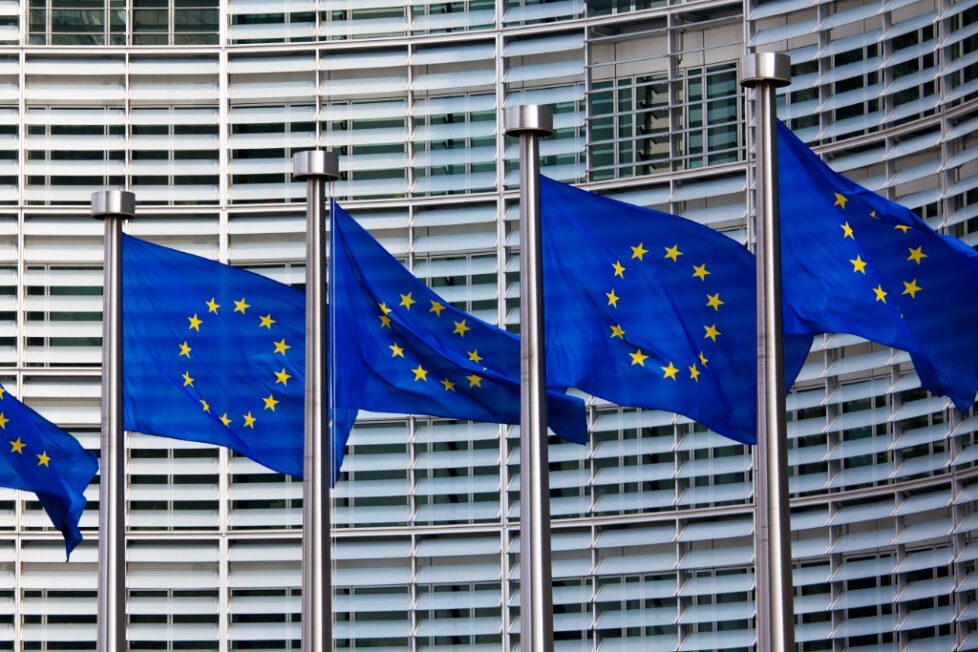EU Lawmakers Reach Deal on Sustainable Product Rules

Lawmakers in the European Parliament and Council announced today that they have reached a provisional agreement on proposed regulations for a new “Ecodesign” framework to establish sustainability requirements for nearly all products across the EU, and to improve information to consumers about products’ environmentalEnvironmental criteria consider how a company performs as a steward of nature. More sustainability.
The agreement follows an initial proposal by the European Commission in March 2022 to set rules to improve the sustainability profile of a wide category of products, including making them more environmentally friendly, circular, and energy-efficient through their lifecycle, by replacing the existing 2009 Ecodesign directive, which was limited to energy-related products.
In an EU Commission statement welcoming the agreement, Maroš Šefčovič, Executive Vice-President for European Green deal, said:
“The regulation will ensure that products on the EU market are more energy-efficient, durable, reusable, repairable, recyclable as well as increasingly made of recycled materials. It is an enormous opportunity for businesses and consumers alike, and it is also key to reach climate neutrality, reverse biodiversity loss, reduce Europe’s dependencies and strengthen our economic competitiveness.”
Under the new regulation, the Commission would be empowered to adopt ecodesign requirements for products to improve their environmentalEnvironmental criteria consider how a company performs as a steward of nature. More sustainability, across nearly all product categories, with exclusions including motor vehicles, which are covered by separate legislation, and products that have an impact on defense or national security. Parliament and Council negotiators agreed that the Commission should prioritize product groups including iron, steel, aluminum, textiles, furniture, tires, detergents, paints, lubricants and chemicals.
Requirements under the proposal cover a broad range of sustainability aspects including product durability, reusability, upgradability and reparability, the use of substances that inhibit circularity, energy and resource efficiency, recycled content, remanufacturing and recycling, and products’ carbon and environmentalEnvironmental criteria consider how a company performs as a steward of nature. More footprints.
The regulation will also see the establishment of a new “Digital Product Passport,” aimed at helping consumers and businesses to make informed choices when purchasing products, by providing information about products’ environmentalEnvironmental criteria consider how a company performs as a steward of nature. More sustainability, and calls on the Commission to manage a public web portal enabling consumers to search and compare information included in product passports.
One of the key rules established in the new agreement is a ban on the destruction of unsold textiles, including clothing and footwear, addressing a key focus area for environmentalEnvironmental criteria consider how a company performs as a steward of nature. More impact. The ban will be applicable two years after the regulation’s entry into force, with exemptions for small and micro companies, and a 6-year exemption for medium sized companies. The regulation allows for additional product categories to be added to the unsold product destruction ban, and also requires reporting on the quantities of unsold goods that are destroyed and the reasons for their destruction.
EU Parliament Rapporteur Alessandra Moretti said:
“It is time to end the model of “take, make, dispose” that is so harmful to our planet, our health and our economy. New products will be designed in a way that benefits all, respects our planet and protects the environment. Sustainable products will become the norm, allowing consumers to save energy, repair and make smart environmentalEnvironmental criteria consider how a company performs as a steward of nature. More choices when they are shopping. Banning the destruction of unsold textiles and footwear will also contribute to a shift in the way fast fashion manufactures produce their goods.”
With the provisional agreement reached, the new regulation will need to be formally adopted by the EU Parliament and Council before entering into force.